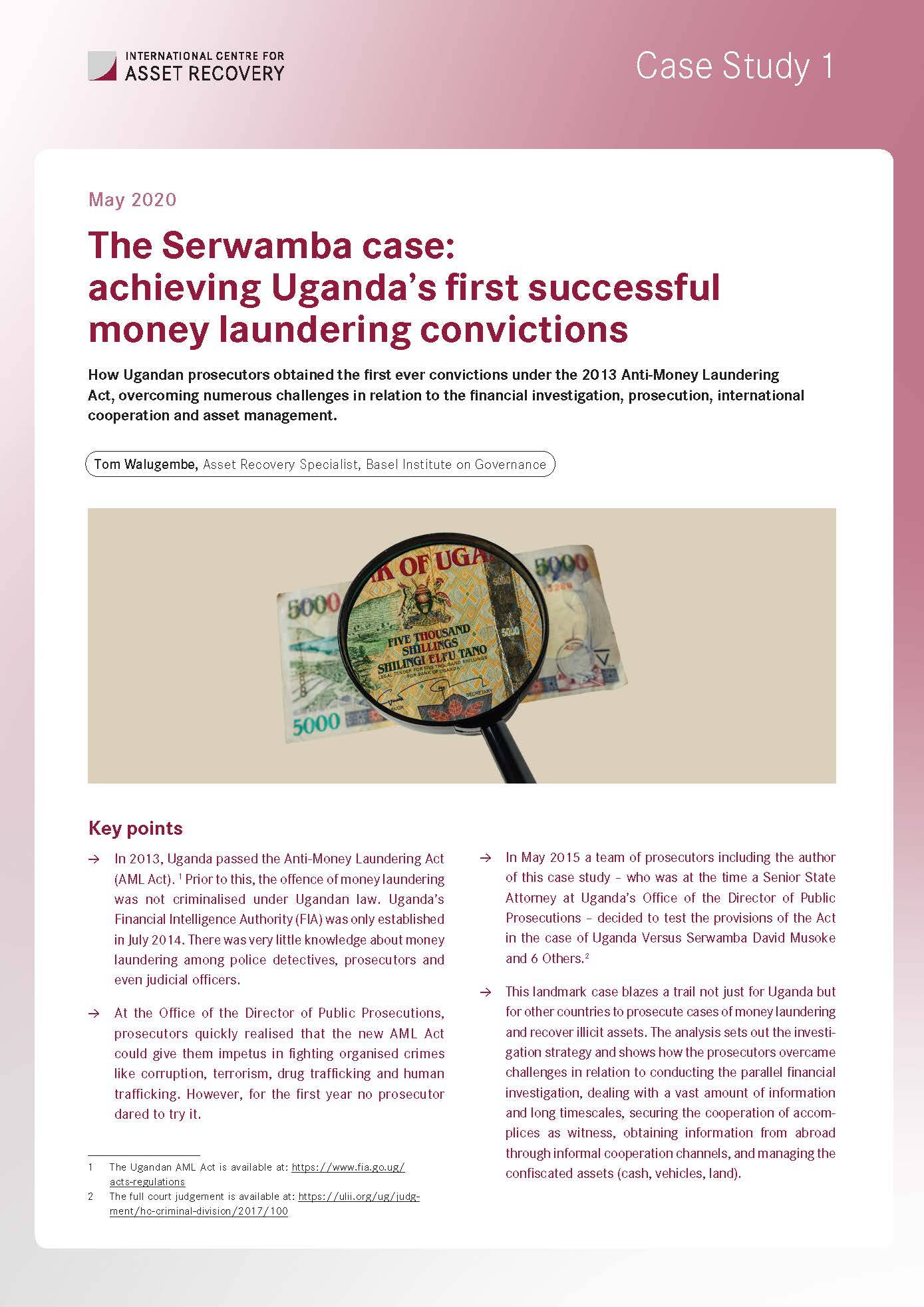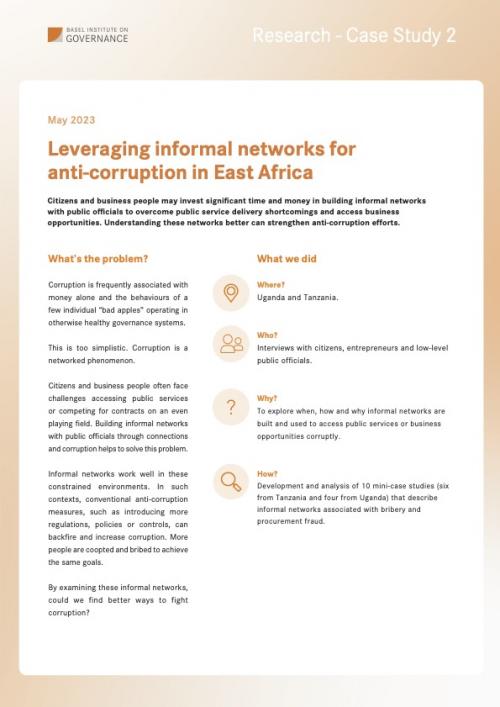Case Study 1: The Serwamba case: achieving Uganda’s first successful money laundering convictions
This case study explains how Ugandan prosecutors obtained the first ever convictions under the 2013 Anti-Money Laundering Act, overcoming numerous challenges in relation to the financial investigation, prosecution, international cooperation and asset management.
This landmark case blazes a trail not just for Uganda but for other countries to prosecute cases of money laundering and recover illicit assets. The analysis sets out the investigation strategy and shows how the prosecutors overcame challenges in relation to conducting the parallel financial investigation, dealing with a vast amount of information and long timescales, securing the cooperation of accomplices as witness, obtaining information from abroad through informal cooperation channels, and managing the confiscated assets (cash, vehicles, land).
Open-access licence and acknowledgements
This publication is part of the Basel Institute on Governance Case Study series, ISSN 2813-3900. It is licensed for sharing under a Creative Commons BY-NC-ND 4.0 licence.
The Case Study series offers practitioners insights into interesting and precedent-setting cases involving corruption and asset recovery. Many such cases are drawn from partner countries of the Basel Institute's International Centre for Asset Recovery.
Suggested citation: Walugembe, Tom. 2020. “The Serwamba case: achieving Uganda’s first successful money laundering convictions.” Case Study 1, Basel Institute on Governance. Available at: baselgovernance.org/case-studies.
Links and other languages



